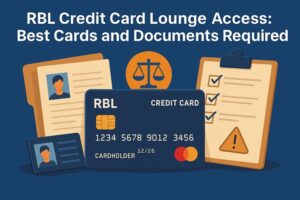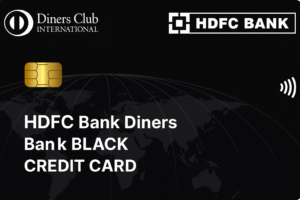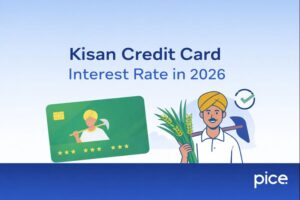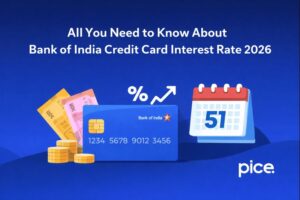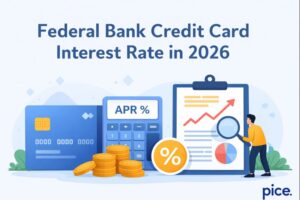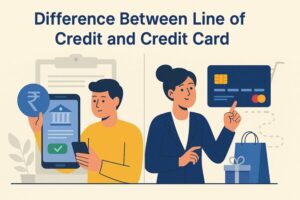How to Get Rid of Credit Card Calls in India: Stop Spam & Harassment Legally
- 30 Oct 25
- 8 mins
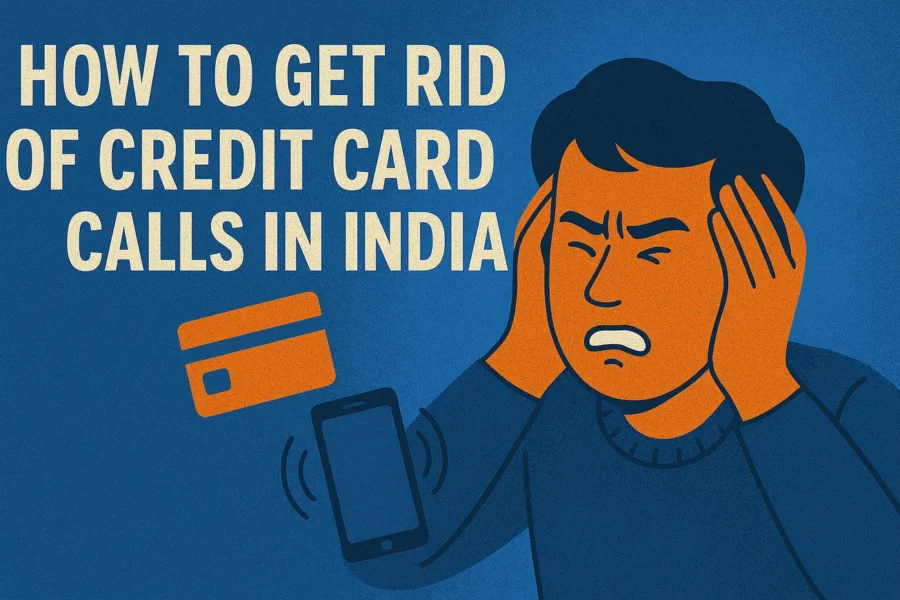
How to Get Rid of Credit Card Calls in India: Stop Spam & Harassment Legally
- Why You Get Credit Card Calls: Marketing vs. Debt Collection
- How to Block Unwanted Marketing or Telemarketing Calls
- RBI Guidelines on Debt Collection Practices You Should Know
- How to Complain About Harassing Calls
- Negotiating or Restructuring Your Debt With the Bank
- Paying Off Dues to End Collection Calls
- How to Spot and Avoid Fake or Scam Credit Card Calls
- Conclusion
Key Takeaways
- Calls regarding credit cards in India come under two major categories: marketing and debt collection.
- Telemarketers in India have been issued strict regulations from the Telecom Regulatory Authority of India, and it is possible to block spam calls.
- Apart from installing an app which identifies and blocks spam calls, users can send a message to TRAI to be on the DND registry or to file a complaint on telemarketers.
- Important information regarding your credit card, such as balance outstanding amount, and interest rate should not be dismissed.
- However, recovery agents from banks also have several rules and regulations to follow, including avoiding coercion and threats, and respect to privacy.
Unwanted credit card calls are more than just annoying; for many Indians, they are a daily ordeal. According to a recent survey, 95% of mobile users receive unwanted calls every day, and about 60% get three or more spam calls daily.
Whether you are receiving promotional offers you never asked for or calls from debt collectors about past-due accounts, these interruptions can steal time, peace, and privacy. This article outlines how to get rid of credit card calls using legal tools, official mechanisms, and practical tips, allowing you to silence the noise and regain control.
Why You Get Credit Card Calls: Marketing vs. Debt Collection
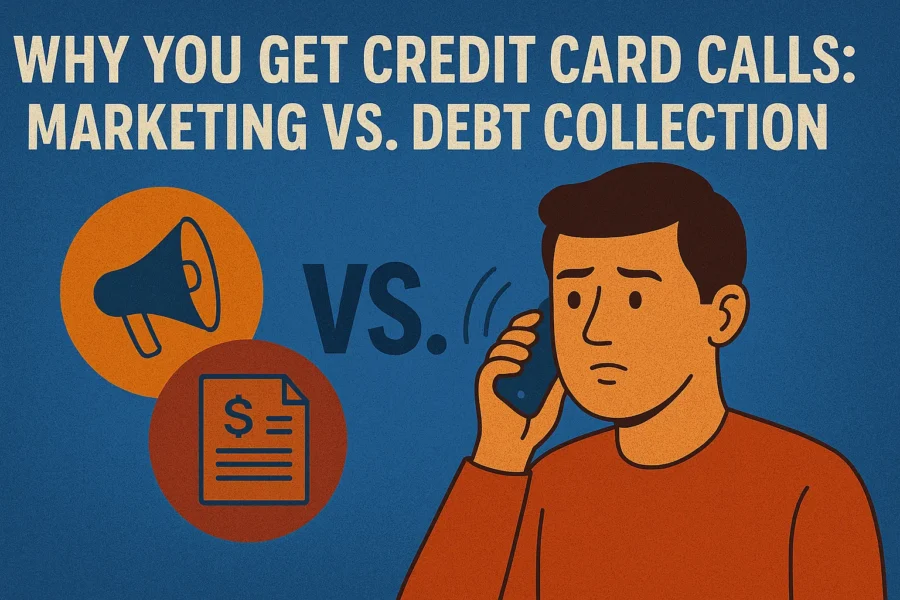
The majority of Indians are subject to two kinds of credit card calls:
- Telemarketing or marketing by banks or outsourced sales personnel selling new credit cards, balance-transfer deals or upgrades. These are, in essence, promotional calls.
- When an account is overdue, the debt-collection calls are made by the recovery departments of banks or third-party agencies. These can increase in frequency and violence in case the amount is not paid.
It is important to know what type of issue you are dealing with, as the remedies generally differ. It is easy to block a telemarketer. Negotiation and an understanding of the rights are involved in dealing with a collection agent.
How to Block Unwanted Marketing or Telemarketing Calls
And when your phone continues to be bombarded with sales calls which you have not requested, the fastest way to get them to stop is to subscribe to the TRAI “Do Not Disturb” (DND) registry.
Activation of Do Not Disturb: Activate DND by sending SMS to 1909 (START 0) using your mobile number or calling 1909 to activate. This prevents the majority of promotional messages and calls.
Selective Blocking: You may choose to block only certain types (like credit cards and not banking alerts) upon registration as options 1-7.
Report Violations: If you still get promotional calls after 7 days of activation, send an SMS “COMP TEL NO XXXXXXXXXX” to 1909 mentioning the offending number. The Telecom Regulatory Authority of India can fine the telemarketer.
Install Call-Blocking Apps: Other apps as well as native phone features can also block the spammy numbers.
All these measures are sufficient to eliminate most undesirable credit card sales calls within just weeks.
RBI Guidelines on Debt Collection Practices You Should Know
In instances where the calls concern a real outstanding balance blocking the number might not be effective and neither should the valid communication regarding your account be disregarded. Luckily, the Reserve Bank of India has published a Fair Practices Code for lenders/recovery agents. Key protections include:
- Agents are not allowed to call between 7 am and 7 pm.
- They would be required to identify themselves and the bank they are representing.
- They are not allowed to use abusive language and threats or coercion.
- They should take care of your privacy during work, not share the information with colleagues or relatives.
In case of breach of these rules on the part of the agent, any written grievance should be forwarded to the grievance cell of the bank, and the matter should be further brought to the attention of the RBI Ombudsman in case no action is taken on the same within 30 days. The most important first step in learning how to handle credit card calls that exceed the limits and turn into harassment is to understand your rights under such guidelines.
How to Complain About Harassing Calls
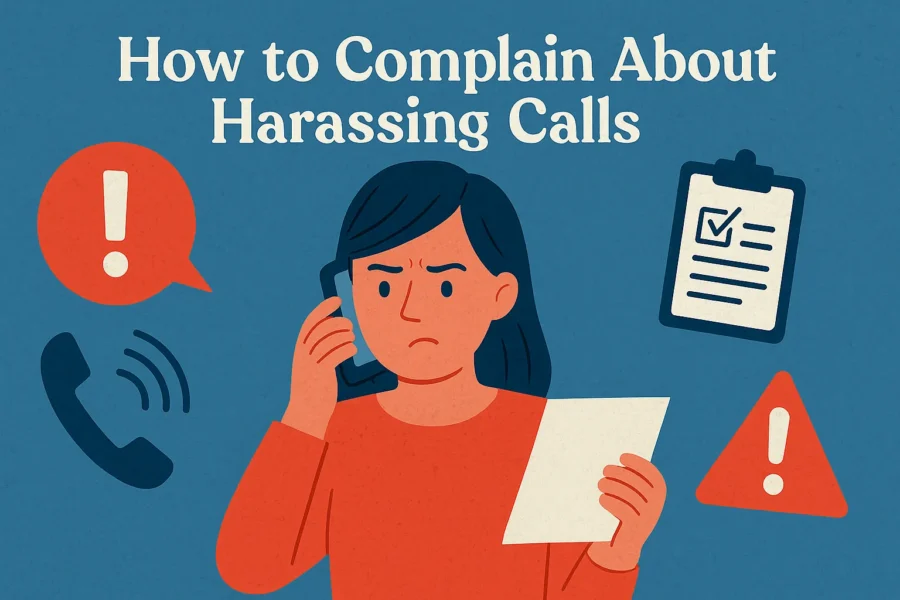
In case blocking and requesting in a polite manner do not help to prevent the harassment, follow these steps:
Write to the Bank: Each card issuer company in India has a contact officer for grievance redressal. Email ID or mail a letter specifying the dates, times and character of calls.
Go to the Nodal Officer: In case of unsatisfactory response, go to the nodal officer or the principal nodal officer of the bank.
Visit the RBI Ombudsman: Submit a complaint online at https://cms.rbi.org.in or by mail. The Ombudsman has the authority to compel the bank to take action against errant agents.
National Consumer Helpline (NCH): 1800-11-4000 or 1915, or submit your complaint online at consumerhelpline.gov.in to register your complaint.
Police Complaint: In severe situations of threats or abuse, you may file an FIR under the applicable provisions of the IPC.
Record all the details, including logs of phone calls, recordings, and screenshots, to have a piece of evidence. This prevents harassment but also aids in punishing violators by the authorities.
Negotiating or Restructuring Your Debt With the Bank
In some cases, the most effective method of reducing collection calls is to settle the debt. If you are struggling to pay:
Request repayment plan: Most banks are providing an installment payment or EMI conversion of the overdue amount.
Accept settlement offers: In case your account is grossly delinquent, the bank might accept a lump-sum payment at a discounted rate.
Credit Counselling: There are non-profit credit counselling centres which assist you in budgeting and bargaining with the lenders, assisted by the RBI.
Such measures are taken to show the bank that you are trying your level best and this usually lessens the number and intensity of calls.
Paying Off Dues to End Collection Calls
Finally, the best manner of terminating the collection calls is to pay the outstanding balance. Although you may not be in a position to pay in full, begin to make regular part-payments. This is an indicator of good faith, and in most cases, it helps to avoid handing over the account to more vicious recovery agencies. This should be included in your action plan for how to get rid of credit card calls forever.
💡If you have any outstanding credit card bills, consider using the PICE App to pay them.
How to Spot and Avoid Fake or Scam Credit Card Calls
Phishing calls, in which fraudsters impersonate bank employees or RBI officials, have been on the rise in India. Be on the alert for the following warning signs:
- The caller requests you to provide your PIN, OTP or CVV - no reputable bank will.
- Offers that are too good to be true, such as free upgrades without verification.
- Menaces of being arrested or your account being blocked right away in case you fail to pay.
In case of any suspicion of a scam, please hang up and call your bank on the official number and report the matter to the National Cyber Crime Reporting Portal (cybercrime.gov.in). To ensure you are not a victim of the credit card calls as you learn the ways to dispose of them, being alert will assist you.
Conclusion
When you are being bothered by banks or agents due to constant calls, it is simple to put things back in order. Knowing how to get rid of credit card calls in India starts with registering for Do Not Disturb, blocking spam numbers, and keeping clear records of any harassment.
Take forward unresolved grievances to your bank or RBI Ombudsman and get a feasible solution to settle pending dues. Such a mixed strategy will assist you in reducing the distraction, defending your rights, and having true peace of mind.
 By
By 





